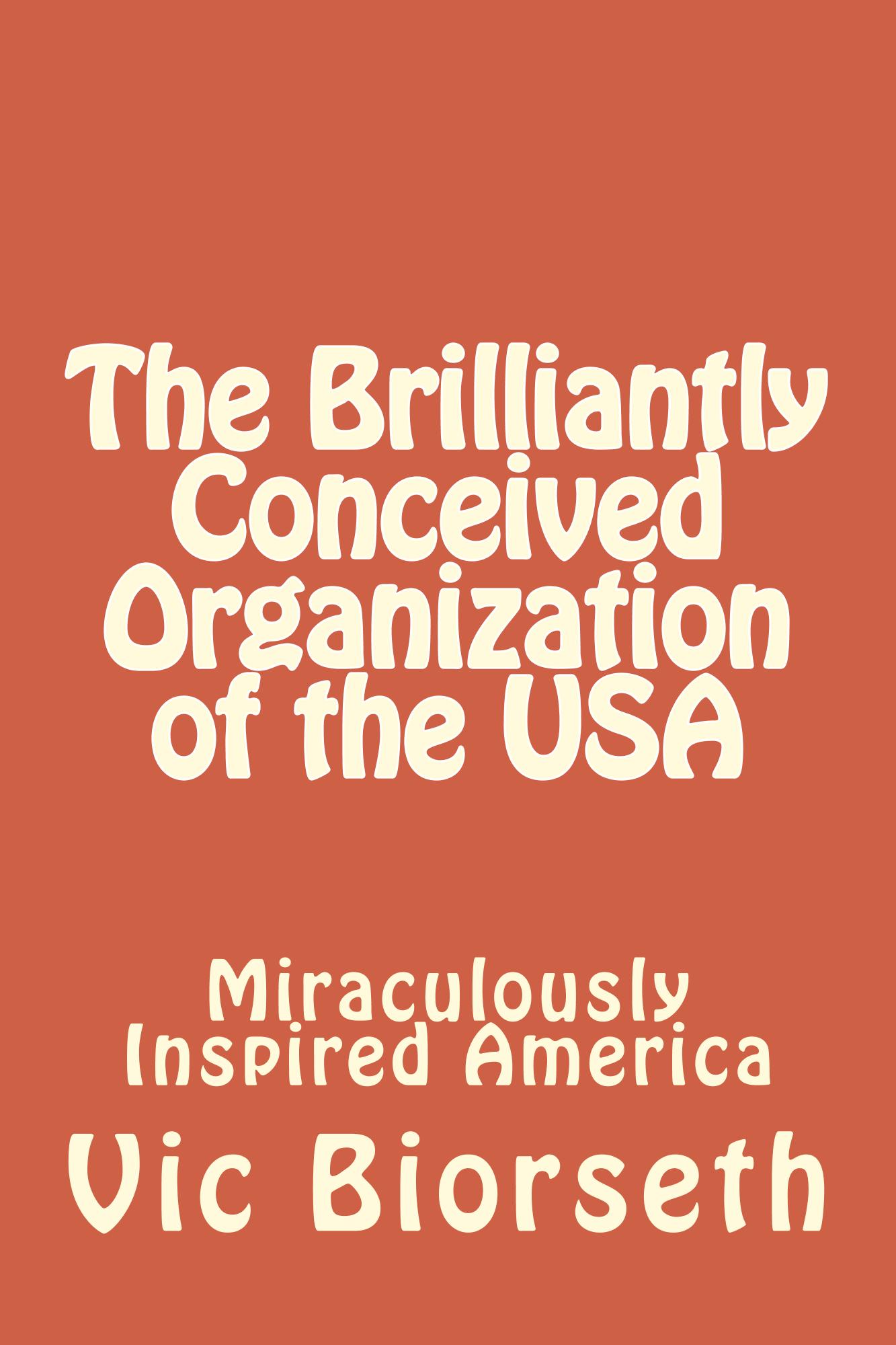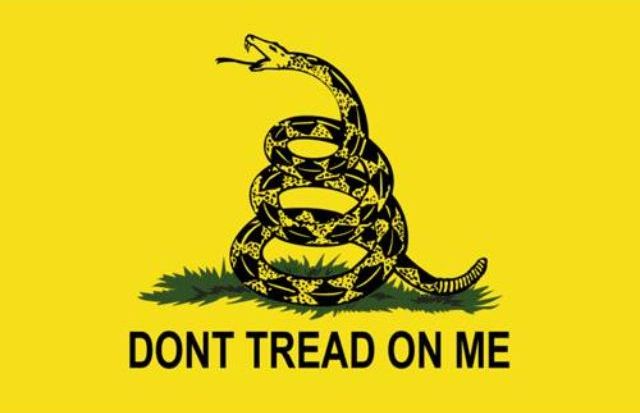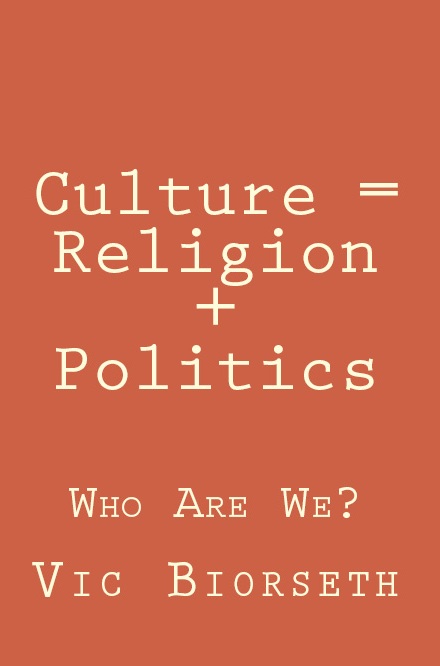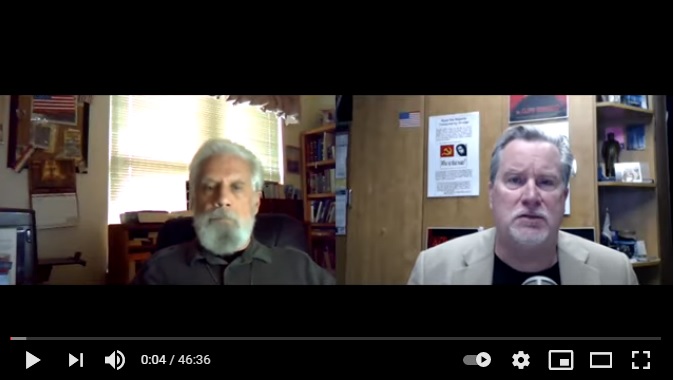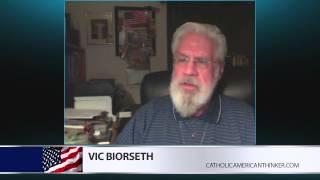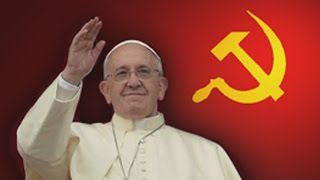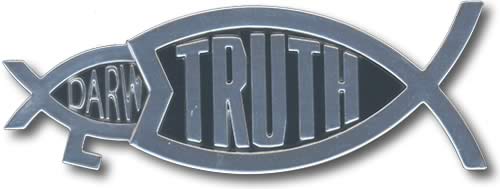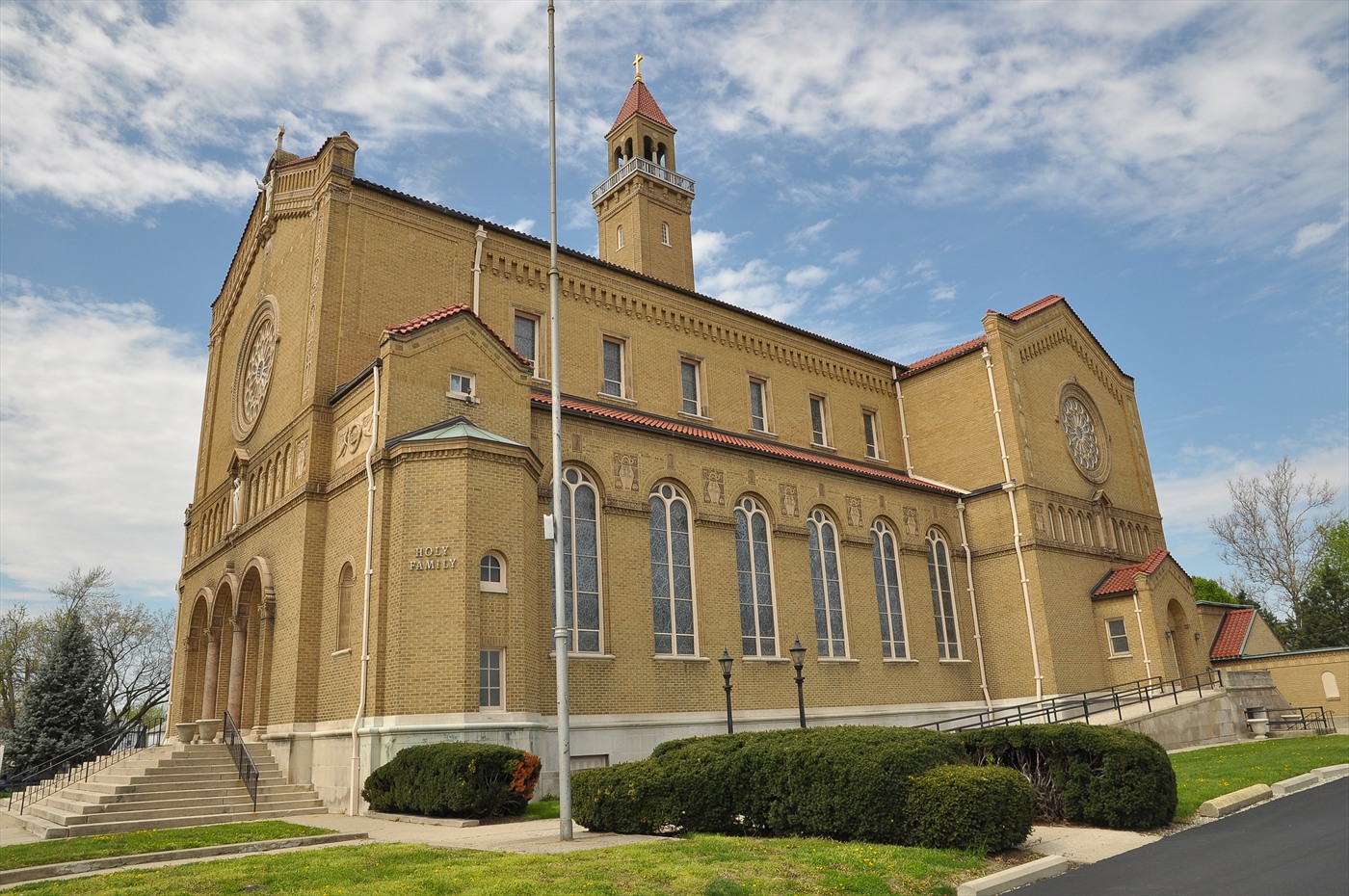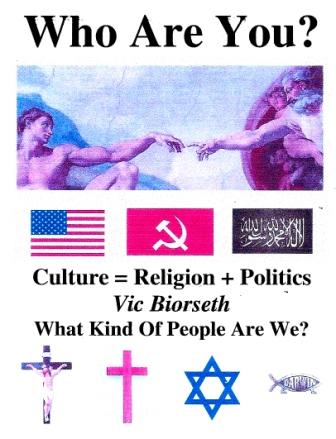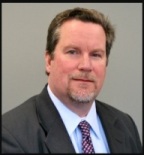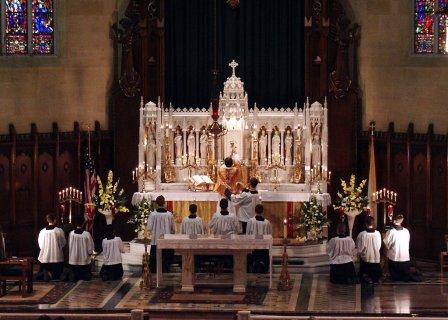Formerly the Thinking Catholic Strategic Center
Confirming Culture=Religion+Politics
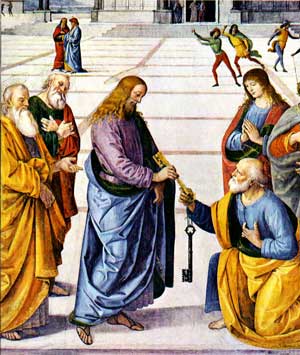
The contentious issue of the Infallibility of Papal and Church teaching.
On matters of faith and morals - matters pertaining to Divine Revelation - our central Catholic trust is in the Infallibility of the Holy Ghost, Peter and The Church, acting together.
Vic Biorseth, http://www.CatholicAmericanThinker.com
Infallibility is an issue of momentous importance. It was the topic of multiple heated debates I had with various professors at the Athenaeum of Ohio while attending classes in the LPMP (Lay Pastoral Ministry Program.) This WebPage is a final repository for my arguments, to be linked to from other WebPages, and to have it's own left-column navigation button. Some Athenaeum professors insisted that only the highest level of doctrine - dogma - involved Papal infallibility in any way. Some denied the strength, and some even the existence, of the Ordinary teaching office of the Pope, fully recognizing only the Extraordinary Papal teaching office.
There were similar debates regarding the Church's consistent teaching on Slavery, and so I did a page on that in the Catholic American Thinker, to be linked to from the various LPMP classes in which it became an issue. Infallibility, however, is a broader and more critical issue, which a lot of Catholics and non-Catholics, American and non-American, have an interest in. Indeed, the principles of Infallibility - the notion of the existence in the World of an infallible teaching authority - is central to the preservation of Christianity itself. It is that principle alone that prevents Christianity from radical change from century to century, as can be witnessed in the recorded history of every single non-Christian / non-Jewish religion that has a historical record.
Infallibility: Reasonableness and Practicality
First, in considering the notion of infallibility itself, it should be noted that just about every Christian denomination or confession believes in it, although they may not call it infallibility, and many may deny this contention. Their actions speak louder than their words.
At the most extreme opposing position from the Catholic position, we find the so-called “fundamentalist” Sola-Scriptura Protestant who denies all teaching authority other than his Bible, deeply involved in his every-man-for-himself interpretation and Scripture-alone authority of the Revealed Truth, in which he believes that he, aided by the Holy Ghost, achieves the level of infallibility when reading and interpreting all of the Word for himself. (Although he might not say it like that.)
The Quaker and Quaker-like denominations hold that the “inner light” provides them with all that they need, per John 1:9: “That was the true light, which enlighteneth every man that cometh into this world.” They therefore deny Church organization, clergy, sacraments and so forth, and hold “silent” meetings in which each prays silently, according to the given inner light, which they see as infallible.
A little closer to the Catholic position we find the more orthodox Protestant denominations, in which we find that, in their Liturgy, someone is standing in a pulpit or otherwise in front of the congregation, reading – and interpreting – the Word, while the others are hearing and learning, in a modern day scene reminiscent of Ezra reading and interpreting so that all could understand (Nehemiah 8:8.), or of Phillip interpreting for the Ethiopian eunuch (Acts 8:30-31).
There is a very good reason that the ministers speak and the congregations hear. For the first and second centuries, the Church did not use the word Bishop to designate the Apostles and/or other heads of various Churches; the Church referred to the Apostles and their appointees in various Churches as Prophets, or Teachers. This did not mean that they “prophesied” about the future, in the older sense of the word, but that they correctly interpreted and taught the Good News of Jesus Christ as passed on by Him and by the original Apostles themselves. This is the language used in the first century – the century of Christ and the Apostles – and in the second. It is, indeed, the language of the inspired first century authors of New Testament Scripture. With that language usage in mind, let us consider the first rule of Scripture interpretation, which we find in 2 Peter 1:19-21:
"19 And we have the more firm prophetical word: whereunto you do well to attend, as to a light that shineth in a dark place, until the day dawn and the day star arise in your hearts. 20 Understanding this first: That no prophecy of scripture is made by private interpretation. 21 For prophecy came not by the will of man at any time: but the holy men of God spoke, inspired by the Holy Ghost."
These "holy men of God" who spoke under Divine inspiration were the Apostles and the Evangelists, including those who actually wrote the inspired words that became the New Testament that we read today. Out of this ongoing speaking Tradition of the Apostles came the written Word of God. (Up until that time, all Scripture mentioned in Scripture referred solely to Old Testament Scripture, the New Testament not having been written yet.)
There is a sense here that some are specially set apart for the purpose of protecting and passing on the Good News. Whether they own up to it or not, our more orthodox Protestant brothers and sisters have ministers who fulfill for them much the same functions as our bishops and priests, in that these ministers are deemed by their congregations to be devout, holy, upright and decent individuals, who (hopefully) dedicate their entire lives to the single job of correctly shepherding the flock of Christ, and passing on the “Kingdom” message to the ends of the world.
When someone sits in a congregation and listens intently and correctly to the Good News, they are saying by that action that they recognize that this Church, this organization to which this minister belongs, has the one and only correct interpretation of the Word, and if they did not believe that, then they would not be regularly sitting there hearing and receiving the Word, as interpreted by this denomination or confession, and this one alone. If they believed otherwise, then they might go to a Catholic Mass next Sunday, and perhaps a silent Quaker gathering the next. These people believe that their denominations hold the infallible truth about the Revelation of Jesus Christ.
I think we all naturally know that there exists such a thing as an objective truth that is completely independent of the mind of man, and that remains objective truth regardless of how or what or even if we think about it. But we are all different, and therefore might each interpret some small item of objective truth differently. My whole point here is this: the very existence in this world of one single unchanging Gospel message logically demands the ongoing existence in this world of one single infallible authority to preserve it unchanged, and to properly teach it to others. Newman put it this way:
"The most obvious answer, then, to the question, why we yield to the authority of the Church in the questions and developments of faith, is, that some authority there must be if there is a revelation given, and other authority there is none but she. A revelation is not given, if there be no authority to decide what it is that is given. In the words of St. Peter to her Divine Master and Lord, “To whom shall we go?” Nor must it be forgotten in confirmation, that Scripture expressly calls the Church “the pillar and ground of the Truth,” and promises her as by covenant that “the Spirit of the Lord that is upon her, and His words which He has put in her mouth shall not depart out of her mouth, nor out of the mouth of her seed, nor out of the mouth of her seed’s seed, from henceforth and for ever. ” (Emphasis added.)
(An Essay on the Development of Christian Doctrine; John Henry Cardinal Newman; Notre Dame Press; 1989 (original 1878); pages 88 and 89)
There are two questions to be asked and answered regarding any on-going infallible authority on earth. First, did our Lord Jesus Christ institute an earthly Church, and second, if He did, then did He intend for it to continue existing until this day, and perhaps beyond. If the answer to both of those questions is yes, then it is fairly hard to conceive of how He might have intended for His Church to have ever altered, in any way, His saving message to the world.
We know, without question, that the Roman Catholic Church is the Church founded by Jesus Christ. The historical evidence backing that statement is overwhelming in quantity and irrefutable in quality. The Roman Catholic papacy is the oldest, uninterrupted, continuously existing institution on earth, by an exceptionally wide margin. There is a very good reason for that.
Church, State and Infallibility
Ecclesial Law and Civil Law
The Church is not, has never been, and can never be, a Democracy. Yet human nature seems to demand some variant of Democracy for civil government. The exact opposite of Democracy is Bureaucracy. As an organization for civil government, bureaucracy has the problem of selecting its leaders. In all forms of Socialism, which is, almost definitively, bureaucracy with a capital B, the leadership determination method has historically been by brute force. Von Mises described how early German Socialists such as Count Henri de Saint-Simon and Auguste Comte pointed to the Roman Catholic Church as the perfect model of Plato’s Utopia, a perfect bureaucracy, unchanging, fixed and stable for centuries, which had solved the problem of every non-democratic government, the peaceful and reliable method of the selection of the rulers. (Bureaucracy; Ludwig von Mises; Center For Futures Education; 1983; page 102.)
And it was the same for later Socialists, although for obvious reasons they did not publicly point to the Church as their model. It would be the perfect government organization, if only it could be stripped of its silly religion and religious trappings. It is a pure bureaucracy, but one that has “Democratic” overtones. To paraphrase Von Mises, the highest offices and dignities of the Church are virtually open and accessible to every Catholic boy. Local priests are anxious to smooth the way to higher education for the most intelligent youths with a calling; these are trained in the Bishop’s seminary, and their further career depends entirely upon their character and zeal and intellect.
As Mises pointed out, there are among Catholic Church prelates many scions of noble and wealthy families, alongside sons of farmers. They do not owe their office to their ancestry, social position or money at all; they must compete, on almost equal terms, with the sons of the poor, ordinary workers and nobodies. The princes of the Catholic Church, the abbots and the teachers of the theological universities, are (or were once) recognized by all as a body of truly eminent men. Even in the most advanced countries they were always worthy rivals of the most brilliant scholars, philosophers, scientists and statesmen. No other precedent of such a perfect hierarchy can be found other than that presented by Catholicism; but as a model for secular society and a system of civil government, it cannot possibly work.
The realm ruled by the Pope and the other Bishops is not subject to any change; it is built upon a perennial and immutable doctrine whose creed is fixed forever. There is no progress and no evolution; there is only obedience to the existing law and the dogma. What dogma? Every element of the Creed. (Dogmas “outside” the Creed flow from elements of the Creed. Infallibility, for instance, flows from “One holy Catholic and Apostolic Church”; the Assumption and the Immaculate Conception flow from “…born of the Virgin Mary…”; etc.)
To deny dogma is to deny original Revelation. Revelation, which is to say, Scripture and oral Tradition, cannot be allowed by the Church to change. Defined and decreed doctrine and dogma come into being, most usually, when doctrinal points are publicly called into question, and require an official definition in the light of Revelation to settle the matter once and for all. Doctrine and dogma develop over time only in wrapping and in nuance and in language necessary to teach old truths to newer generations under newer cultural circumstances. The core teaching does not change. When any Revealed Truth is challenged, the Church may reinforce it by re-explaining it, by elevating it in firm teaching, or by declaring new doctrine or even dogma concerning it, in its own defense. It is an important responsibility of the Church to preserve Revelation unchanged, until He comes again.
Disregarding, for the moment, the purpose to go forth and preach the Kingdom to all nations, the purpose of the Church is to protect the Creed from contamination, which is another way of saying that the purpose of the Church is to not change. Or, at least, the Church cannot change what the Church teaches. The selection process by which Catholicism chooses its future chiefs is carefully safeguarded by the old and well tried present rulers, and is based upon unswerving devotion to the creed and its dogmas; it does not look for innovators, reformers, pioneers or proponents of new ideas. This adamant conservatism, in the oldest meaning of the word, is perfect for Catholicism’s purpose of preserving an ancient liturgy and an unchanging creed, but it would be death to civil society and civil government.
Man’s most precious inherent right is to strive endlessly to improve his condition, and to innovate new methods to overcome the new and ever changing obstacles to his self improvement. Those forces which brought about our present condition, level of advancement, and civilization are still operating, they are not dead; if our ancestors had adopted pure bureaucracy and achieved perfect stability as in Plato’s Utopia, they would long ago have been wiped out by beasts of prey or microbes, which is why rigid bureaucratic methods are totally inadequate for ruling the conduct of the social and economic affairs of men. The world changes; only the Church remains unchanged. My Kingdom is not of this world (John 18:36.)
The purpose of the Church is to protect the ancient creed and liturgy from change; but the purpose of the world is to change, and change it has, and change it will, and nothing can stop it. Bureaucracy works well for the Church, but only for the Church, and certainly not for civil government (Bureaucracy, Ludwig von Mises, Center For Future Education, 1944; pages 101-104.) The Church provides stability and an unchanging basis for morality, upon which society should be founded. Bureaucracy succeeds for the Church because the goal of the church, which coincides with the goal of the bureaucracy, is to not ever change.
Bureaucracy fails as a form of national government because it is rigid and static as opposed to flexible and dynamic, and can not handle change, particularly rapid change, and the world, quite simply, will not stop changing. The most successful worldly scientists and entrepreneurs are always the proactive innovators and agents of change; but the most successful ecclesial authorities are those who deeply love, jealously protect and teach the unchanging Revelation.
While an individual should never want his moral base to change, he should always want access to a newly developed pill with which to better fight off the old or newly discovered microbe. In the ideal situation, individual men submit to the authority that gives them their moral base; these moral individuals cooperate to construct their families, the primal social unit, and their larger societies and social organizations. But the same individual who might submit to the rule of the Church over affairs of his soul may and should resist having the minute details of his day to day life micro-managed by the state. Free men need to participate in their own government. Some degree of representative civil government is needed in secular life.
There is and must be a major split between ecclesial and civil authority. But problems arise when civil authority attempts to legislate or regulate morality – whether up or down – without input from all those affected, just as problems arise when ecclesial authority attempts to interfere with affairs of state, disregarding those of other faiths. In a perfect world, which we will never see, a moral population would elect moral representatives, who would legislate and enforce moral law. We are an 86% professed Christian nation, and a 96% professed believer nation; it would seem reasonable to assume that our legislators and judges and executives might be overwhelmingly Christian and non-atheist, and “moral” in the Judeo-Christian, Western-Culture sense of the word.
But in our era, in this overwhelmingly Christian nation, we have our tax dollars used by public schools to pass out condoms to other people’s children, and to teach the mechanics of “safe” fornication, “protected” sodomy, “responsible” promiscuity, even as popular entertainment winks at “discreet” adultery, just for openers, and note well that Scripture in school and Christian expression in public are very strongly censored here. Religious censorship aimed predominantly at Christianity is the main way in which the ACLU spends our tax dollars.
We may well wonder exactly who is imposing whose religion upon whom.
No one among our “representatives” even asks how or why overarching “tolerance” and explicit sexual topics ever became an integral part of the classical education curricula, or how they help our children, let alone precisely how the teachers might have become qualified to teach them. The secular “world” is unqualified to teach morality.
Protestant America might not accept papal infallibility, but they might certainly be much more in agreement with the pope’s view of morality than that of the civil government or of academia or of Hollywood. Tension between the ecclesial and the temporal authorities is necessary; it should be expressed in direct, public, open dialogue to be healthy, which is to say, neither side should be completely overpowered or dominated by the other.
For Catholics, no matter what happens in culture, morality does not change. We have a fixed peg in a sure place, and a sure guide at the helm.
Just as papal infallibility is deeply entangled with papal supremacy, we cannot discuss infallibility without first discussing the Magisterium of the Church. We cannot even talk about official Catholic teaching, and official Catholic teaching authority, without talking about Magisterium; a definition for Magisterium can be found in any Catholic dictionary.
Magisterium is the Church’s teaching office and authority. It is vested in the Pope, as Vicar of Christ and visible head of the Church. It is also vested in the bishops, as successors of the Apostles, under the Roman Pontiff. There are two different levels of magisterial teaching.
Extraordinary Magisterium refers to Church teaching expressed in a solemn way, as in formal declarations of the Pope, pronouncements of ecumenical councils or other councils of bishops approved by the Pope. Papal definitions and counciliar decisions are binding on the consciences of the faithful, and are infallible.
Ordinary Magisterium refers to the teaching office (the hierarchy under the Pope) exercised normally through the regular means of instructing the faithful. These means are all the usual channels of communication, written, spoken or otherwise transmitted. When an ordinary magisterium (teaching) is a universal teaching, i.e., intended to instruct all faithful everywhere, it is also binding on the consciences of the faithful, and it is infallible (Pocket Catholic Dictionary; John a. Hardon, S.J.; Image; 1985; Pages 237-238.) Papal encyclicals, for example, are normally published in many languages, intended for world-wide release, and frequently contain definitive teaching on matters of faith and morals.
Historical Challenges to Infallibility
There have always been objections alleged to the infallibility of the pope, just as there have been for the Church itself. But none that stand the test of investigation. The chief allegation is that popes have taught heresy or changed their teaching, in the format, now it’s dogma, now it’s not. But, in all of history, this has never occurred. There are only three popes involved in these allegations that have ever been worthy of note, and they are the popes Liberius, Honorious and Vigilius.
Pope Liberius is supposed to have subscribed an Arian or Semi-Arian creed drawn up by the Council of Sirmium, and he anathematized St. Athanasius, the great champion of Nicaea, as a heretic. But even if this were an accurate statement of historical fact, it is a very inadequate statement regarding infallibility, because it says nothing about Liberius teaching anyone anything. Infallible does not equal impeccable. And, the important circumstance should be added that the pope acted under pressure of a very cruel coercion, which deprived his action of any claim to be considered ex cathedra, and that he himself, as soon as he had recovered his liberty, made amends for the moral weakness he had been guilty of. It further should be noted that there is no evidence whatever that Liberius ever anathematized St. Athanasius expressly as a heretic. It remains a moot point which of three or four Sirmian creeds he subscribed, two of which contained no positive assertion of heretical doctrine and were defective merely for the negative reason that they failed to insist on the full definition of Nicaea. There was no teaching here.
The charge against Pope Honorius is that, regarding the Monothelite controversy, he actually taught the Monothelite heresy in his letters to Sergius; and that he was condemned as a heretic by the Sixth Ecumenical Council, which was approved by Leo II.
But, first, it is clear from the tone and terms of these letters that, far from intending to give any final, or ex cathedra, decision on the doctrinal question at issue, Honorius merely tried to allay the rising bitterness of the controversy by securing silence. He went out of his way to not make a decision.
And, second, taking the letters as they stand, the very most that can be incontrovertibly deduced from them is, that Honorius was not a profound theologian, and that he allowed himself to be misled by the wily Sergius as to what the issue really was, and he too readily accepted the latter's misrepresentation of the opposite position, to the effect that the assertion of two wills in Christ meant two contrary or discordant wills.
Third, in reference to the condemnation of Honorius “as a heretic,” it is to be noted that there is nothing from the ecumenical council affirming the fact either that Honorius's letters to Sergius contain heresy, or that they were intended to define the question with which they deal.
The sentence passed by the fathers of the council has ecumenical value only in so far as it was approved by Leo II; but, in approving the condemnation of Honorius, his successor adds the very important qualification that he is condemned, not for the doctrinal reason that he taught heresy, but on the moral ground that he lacked vigilance expected of his Apostolic office, and he allowed a heresy to make headway which he should have crushed immediately. Honorius’ error was not in what he taught; it was that he failed to make a decision. Again, this has nothing to do with papal teaching infallibility, but only the weakness of a human being.
As for Pope Vigilius, there is even less reason for trying to base an objection to papal infallibility on the wavering conduct of Pope Vigilius in connection with the controversy of The Three Chapters. These Chapters pertained to documents written by Theodore of Mopsuestia, Theodoret of cyrus and a letter from Ibas to Maris. Early in this long-running controversy, the two major opposing viewpoints hardened, into those who anathematized The Three Chapters, aligned against those who did not anathematize them. The charge was made that those who did not anathematize the writings defended and/or held them, which was not necessarily true. At any rate, the whole thing had nothing to do with any Papal universal Papal teaching.
Regarding the Galileo affair, it should be enough to point out the fact that the condemnation of the heliocentric theory was the work, not of a pope, but of a fallible tribunal. The pope cannot delegate the exercise of his infallible authority to the Roman Congregations, and whatever issues formally in the name of any of these, even when approved and confirmed in the ordinary official way by the pope, does not pretend to be ex cathedra and infallible. The pope, of course, can convert doctrinal decisions of the Holy Office, which are not in themselves infallible, into ex cathedra papal pronouncements, but in doing so he must comply with the conditions already explained -- which neither Paul V nor Urban VIII did in the Galileo case. And, of course, the notion of heliocentricity does not touch upon faith or morals, and does not affect the Depositum Fidei.
The biggest negative example falsely used in modern times seems to be artificial contraception; detractors would have us believe that the Church condemnation of it is something “new.” The quotations of the Church Fathers, the councils, encyclicals and bulls consistently condemning it would fill a paper more than twice the size of this one.
The Church has never changed her position on contraception, from the first century until this very day.
The simple fact of the matter is that no infallible definition of any pope has ever been shown to be in error.
Infallibility Established in Scripture
Scripture has many choice references to Apostolic succession, but I shall concentrate on only a few, since this paper primarily deals with papal infallibility; then will follow some Scriptural references to Peter’s infallibility. But first, it needs to be understood that the successors of the Apostles are with us today, as is the successor of Peter.
The Holy Ghost and Infallibility.
It is beneficial to read the entire 14th and 15th chapters of John, paying careful attention to whom it is that the Lord is speaking, throughout. He is speaking to His Apostles, and that is a very important point. He had previously appointed them Apostles; He has now told them some mysterious things that they cannot fully understand, but that they would later understand, and that He would send another “Counselor” to them, Whom they would know, but the world would not know.
They still did not understand. In 14:22, Judas, not the Iscariot, said to Him, “Lord, how is it that you will manifest yourself to us, and not to the world?” The answer is fairly long. In 14:25-26, He says in reply, “These things I have spoken to you, while I am still with you. But the Counselor, the Holy Spirit, whom the Father will send in my name, he will teach you all things, and bring to your remembrance all that I have said to you.” (Emphasis added.)
Through the Holy Ghost, the Church will never forget the Words of the Lord. Infallibility is not promised randomly to all, but to His Apostles.
He continues in 15:26-27, “But when the Counselor comes, whom I shall send to you from the Father, even the Spirit of truth, who proceeds from the Father, he will bear witness to me, and you also are witnesses, because you have been with me from the beginning.” And He continues farther in 15:12-15: “I have yet many things to say to you, but you cannot bear them now. When the Spirit of truth comes, he will guide you into all truth; for he will not speak on his own authority, but whatever he hears he will speak, and he will declare to you the things that are to come. He will glorify me, for he will take what is mine and declare it to you. All that the Father has is mine; therefore I said that he will take what is mine and declare it to you.”
This represents the guidance, into all truth, of the Church of Jesus Christ, by the Holy Spirit.
Jesus Christ Himself appointed the first twelve Apostles to be the leaders of His Church. Over the last two thousand plus years, there has been an unbroken line of Apostolic succession in the Roman Catholic Church, for 265 Papacies, from number 1, Peter, to number 265, Benedict XVI (although Peter and the first few were not called “Pope.”) Every single Bishop has received a laying on of hands from other Bishops, tracing back to the blessing of Jesus in the upper room, when He breathed on them, and said receive the Holy Spirit (Jn. 20:22.)
Apostolic Succession continues Infallibility.
The first Apostolic succession is to be found in Acts 1 by the establishment Mathias as a replacement Apostle for Judas Iscariot (Acts 1:20-26.) The second letter of Paul to Timothy (2 Tim. 2:2) establishes the role of Apostolic succession in preserving the doctrine that is handed on; in this one passage, “What you have heard from me before many witnesses entrust to faithful men who will be able to teach others also” we find reference to four generations of Apostolic succession: Paul’s, Timothy’s, the generation Timothy will teach, and the generation they will teach.
Church Councils and Infallibility.
Acts 15, the Council of Jerusalem, establishes the model for future Church ecumenical councils. A contentious problem arises; Paul, Barnabas and others were appointed to go up to Jerusalem to the Apostles for a decision; they put the case before the gathered Apostles; the matter was debated; Peter spoke authoritatively; James added details; and a letter was drafted from the Apostles to the gentiles, in which it is stated that “it has seemed good to the Holy Spirit and to us” to settle the matter in this way, and it included an authoritative, written, Apostolic teaching on the subject.
Infallibility in the Sign of the Keys.
In Matthew, our Lord gave the Apostles the power to bind and to loose, in Heaven and on Earth, which represents an awesome power to be granted. The same power to bind and to loose He gave individually to Peter, and to Peter alone He gave the power of the Keys.
In New Testament era Hebrew culture, to give someone the “keys” was to make him the chief steward of the household and to impart to him full authority to act in the absence of the master. This was a very big deal. Chief Stewards of major households wore the Keys (or emblems of them) attached to a sash worn over their shoulder as a badge of office. And in this same Scripture we see that Christ’s Church, founded upon Peter, will prevail against even the powers of Hell. Which it seems to be doing very well.
Infallibility in the Lord's special prayer for Peter.
From Luke 22(31-32) we have this: “And the Lord said: Simon, Simon, behold Satan hath desired to have you, that he may sift you as wheat: But I have prayed for thee, that thy faith fail not: and thou, being once converted, confirm thy brethren.” Here our Lord is addressing the Apostles collectively and Peter individually, in a very special way, if we consider the original Greek:
“And the Lord said: Simon, Simon, behold Satan hath desired to have you (plural), that he may sift you (plural) as wheat: But I have prayed for thee, (singular) that thy (singular) faith fail not: and thou (singular), being once converted, confirm thy brethren.”
This is the prayer of Jesus for Peter, in a passage that is quoted in Vatican II documents (ex: Lumen Gentium Ch 3 § 25), and by John Paul the Great (ex. Fidei Depositum § 3 (at the front of the CCC; John Paul the Great's Apostolic Constitution re the Catechism), as well as by many other Popes and many Church Fathers, as directly referring to papal infallibility.
Church Fathers on Infallibility
The Fathers of the Church attest heavily to the succession of the bishops and particularly of the bishops of Rome. I have selected several who attest to his primacy in the Church.
Clement on Infallibility.
"The church of God which sojourns at Rome to the church of God which sojourns at Corinth ... But if any disobey the words spoken by him through us, let them know that they will involve themselves in transgression and in no small danger." Clement of Rome,Pope,1st Epistle to the Corinthians,1,59:1 (A.D. 96),in GILES,1-2.
Ignatius on Infallibility.
"Ignatius, who is also called Theophorus, to the Church which has obtained mercy, through the majesty of the Most High God the Father, and of Jesus Christ, His only-begotten Son; the Church which is sanctified and enlightened by the will of God, who framed all things that are according to the faith and love of Jesus Christ, our God and Saviour; the Church which presides in the place of the region of the Romans, and which is worthy of God, worthy of honour, worthy of the highest happiness, worthy of praise, worthy of credit, worthy of being deemed holy, and which presides over love..." Ignatius of Antioch,Epistle to the Romans, Prologue (A.D. 110), in ANF,I:73.
Dionysius on Infallibility.
"There is extant also another epistle written by Dionysius to the Romans, and addressed to Soter, who was bishop at that time. We cannot do better than to subjoin some passages from this epistle, in which he commends the practice of the Romans which has been retained down to the persecution in our own days. His words are as follows: For from the beginning it has been your practice to do good to all the brethren in various ways, and to send contributions to many churches in every city. Thus relieving the want of the needy, and making provision for the brethren in the mines by the gifts which you have sent from the beginning, you Romans keep up the hereditary customs of the Romans, which your blessed bishop Soter has not only maintained, but also added to, furnishing an abundance of supplies to the saints, and encouraging the brethren from abroad with blessed words, as a loving father his children.' In this same epistle he makes mention also of Clement's epistle to the Corinthians, showing that it had been the custom from the beginning to read it in the church. His words are as follows: To-day we have passed the Lord's holy day, in which we have read your epistle. From it, whenever we read it, we shall always be able to draw advice, as also from the former epistle, which was written to us through Clement.' The same writer also speaks as follows concerning his own epistles, alleging that they had been mutilated: As the brethren desired me to write epistles, I wrote. And these epistles the apostles of the devil have filled with tares, cutting out some things and adding others. For them a woe is reserved. It is, therefore, not to be wondered at if some have attempted to adulterate the Lord's writings also, since they have formed designs even against writings which are of less accounts.' " Dionysius of Corinth,To Pope Soter(A.D. 171),Eusebius' Ecclesiastical History,4:23,in NPNF2:1:200-202.
Irenaeus on Infallibility.
"Since, however, it would be very tedious, in such a volume as this, to reckon up the successions of all the Churches, we do put to confusion all those who, in whatever manner, whether by an evil self-pleasing, by vainglory, or by blindness and perverse opinion, assemble in unauthorized meetings; [we do this, I say,] by indicating that tradition derived from the apostles, of the very great, the very ancient, and universally known Church founded and organized at Rome by the two most glorious apostles, Peter and Paul; as also [by pointing out] the faith preached to men, which comes down to our time by means of the successions of the bishops. For it is a matter of necessity that every Church should agree with this Church, on account of its pre- eminent authority, that is, the faithful everywhere, inasmuch as the apostolical tradition has been preserved continuously by those [faithful men] who exist everywhere." Irenaeus,Against Heresies,3:3:2 (A.D. 180),in ANF,I:1415-416.
Victor on Infallibility.
"A question of no small importance arose at that time. For the parishes of all Asia, as from an older tradition, held that the fourteenth day of the moon, on which day the Jews were commanded to sacrifice the lamb, should be observed as the feast of the Saviour's passover. It was therefore necessary to end their fast on that day, whatever day of the week it should happen to be. But it was not the custom of the churches in the rest of the world to end it at this time, as they observed the practice which, from apostolic tradition, has prevailed to the present time, of terminating the fast on no other day than on that of the resurrection of our Saviour...Thereupon Victor, who presided over the church at Rome, immediately attempted to cut off from the common unity the parishes of all Asia, with the churches that agreed with them, as heterodox; and he wrote letters and declared all the brethren there wholly excommunicate.But this did not please all the bishops. And they besought him to consider the things of peace, and of neighborly unity and love. Words of theirs are extant, sharply rebuking Victor. Among them was Irenaeus, who, sending letters in the name of the brethren in Gaul over whom he presided, maintained that the mystery of the resurrection of the Lord should be observed only on the Lord's day. He fittingly admonishes Victor that he should not cut off whole churches of God which observed the tradition of an ancient custom ..." Pope Victor & Easter(A.D. 195),Eusebius' Ecclesiastical History 5:23,24,in NPNF2,I:241-243.
Cyprian on Infallibility.
"And he says to him again after the resurrection, 'Feed my sheep.' It is on him that he builds the Church, and to him that he entrusts the sheep to feed. And although he assigns a like power to all the apostles, yet he founded a single Chair, thus establishing by his own authority the source and hallmark of the (Church's) oneness. No doubt the others were all that Peter was, but a primacy is given to Peter, and it is (thus) made clear that there is but one flock which is to be fed by all the apostles in common accord. If a man does not hold fast to this oneness of Peter, does he imagine that he still holds the faith? If he deserts the Chair of Peter upon whom the Church was built, has he still confidence that he is in the Church? This unity firmly should we hold and maintain, especially we bishops, presiding in the Church, in order that we may approve the episcopate itself to be the one and undivided." Cyprian,The Unity of the Church,4-5 (Primacy Text, A.D. 251/256),NE,228-229.
Cyprian, again, on Infallibility.
"After such things as these, moreover, they still dare--a false bishop having been appointed for them by, heretics--to set sail and to bear letters from schismatic and profane persons to the throne of Peter, and to the chief church whence priestly unity takes its source; and not to consider that these were the Romans whose faith was praised in the preaching of the apostle, to whom faithlessness could have no access." Cyprian,To Cornelius,Epistle 54/59:14(A.D. 252),in ANF,V:344.
Athanasius on Infallibility.
"For Dionysius, Bishop of Rome, having written also against those who said that the Son of God was a creature and a created thing, it is manifest that not now for the first time but from of old the heresy of the Arian adversaries of Christ has been anathematised by all. And Dionysius, Bishop of Alexandria, making his defence concerning the letter he had written, appears in his turn as neither thinking as they allege, nor having held the Arian error at all." Athanasius,Dionysius of Rome,13 (A.D. 352),in NPNF2,IV:180.
I stop here with quotes of the Church Fathers, to move on to more recent evidences. Suffice it to say that the Fathers supported papal primacy through the Anti-Nicene, Nicene, and Post-Nicene eras.
In order to illustrate how the Vatican I infallibility definition of 1870 drew on centuries of reflection and practice, we will cite:
St. Francis de Sales' teaching on Infallibility from around 1596:
"When he teaches the whole Church as shepherd, in general matters of faith and morals, then there is nothing but doctrine and truth. And in fact everything a king says is not a law or an edict, but that only which a king says as king and as a legislator. So everything the Pope says is not canon law or of legal obligation; he must mean to define and to lay down the law for the sheep, and he must keep the due order and form.
"We must not think that in everything and everywhere his judgment is infallible, but then only when he gives judgment on a matter of faith in questions necessary to the whole Church; for in particular cases which depend on human fact he can err, there is no doubt, though it is not for us to control him in these cases save with all reverence, submission, and discretion. Theologians have said, in a word, that he can err in questions of fact, not in questions of right; that he can err extra cathedram, outside the chair of Peter; that is, as a private individual, by writings and bad example.
"But he cannot err when he is in cathedra, that is, when he intends to make an instruction and decree for the guidance of the whole Church, when he means to confirm his brethren as supreme pastor, and to conduct them into the pastures of the faith. For then it is not so much man who determines, resolves, and defines as it is the Blessed Holy Spirit by man, which Spirit, according to the promise made by Our Lord to the Apostles, teaches all truth to the Church."
The analysis of John Henry Cardinal Newman, in 1845:
"Whether communion with the Pope was necessary for Catholicity would not and could not be debated till a suspension of that communion had actually occurred. It is not a greater difficulty that St. Ignatius does not write to the Asian Greeks about Popes, than that St. Paul does not write to the Corinthians about Bishops. And it is a less difficulty that the Papal supremacy was not formally acknowledged in the second century, than that there was no formal acknowledgment on the part of the Church of the doctrine of the Holy Trinity till the fourth. No doctrine is defined till it is violated . . . .
"Moreover, an international bond and a common authority could not be consolidated . . . while persecutions lasted. If the Imperial Power checked the development of Councils, it availed also for keeping back the power of the Papacy. The Creed, the Canon, in like manner, both remained undefined . . . All began to form, as soon as the Empire relaxed its tyrannous oppression of the Church . . .
"Supposing there be otherwise good reason for saying that the Papal Supremacy is part of Christianity, there is nothing in the early history of the Church to contradict it. . .
"Doctrine cannot but develop as time proceeds and need arises, and . . . therefore it is lawful, or rather necessary, to interpret the words and deeds of the earlier Church by the determinate teaching of the later." (Essay on the Development of Christian Doctrine; John Henry Newman; 1845.)
James Cardinal Gibbons eloquently defended Papal Infallibility against many of the common objections of Protestants and other non-Catholics:
"You will tell me that infallibility is too great a prerogative to be conferred on man. I answer: Has not God, in former times, clothed His Apostles with powers far more exalted? They were endowed with the gifts of working miracles, of prophecy and inspiration; they were the mouthpiece communicating God's revelation, of which the Popes are merely the custodians. If God could make man the organ of His revealed Word, is it impossible for Him to make man its infallible guardian and interpreter? For, surely, greater is the Apostle who gives us the inspired Word than the Pope who preserves it from error . . . Let us see, sir, whether an infallible Bible is sufficient for you. Either you are infallibly certain that your interpretation of the Bible is correct or you are not. If you are infallibly certain, then you assert for yourself, and of course for every reader of the Scripture, a personal infallibility which you deny to the Pope, and which we claim only for him. You make every man his own Pope. If you are not infallibly certain that you understand the true meaning of the whole Bible . . . then, I ask, of what use to you is the objective infallibility of the Bible without an infallible interpreter?" (The Faith of Our Fathers; James Cardinal Gibbons; 1917)
Despite the consistent Church orthodoxy on the matter, there have always been those both within and outside the Church who question papal primacy and, especially, infallibility. (Note that the two are inseparable; if the pope were not individually infallible, there would be no point in his primacy.) In 1854, Pius IX declared the dogma of the Immaculate Conception of the Blessed Virgin. There was immediate negative response from Protestantism, and from some Catholic theologians, who wondered aloud how one man by himself could make such a profound statement and expect the entire Catholic world to simply follow his lead in the matter. Again, after all the previous centuries, and even after ecumenical councils had addressed the topic, it was raised in public debate, and many would not let it die.
Ecumenical Councils and Infallibility
We find in Vatican I documents the definitive decrees again outlining papal primacy, and the official declaration of papal teaching infallibility on matters of faith and morals.
Vatican I on Infallibility.
"1. That apostolic primacy which the Roman pontiff possesses as successor of Peter, the prince of the apostles, includes also the supreme power of teaching. This holy see has always maintained this, the constant custom of the church demonstrates it, and the ecumenical councils, particularly those in which East and West met in the union of faith and charity, have declared it." (Vatican I; Chapter 4; On the infallible teaching authority of the Roman pontiff (1))
The document then went on at length to quote from the fourth council of Constantinople, the second council of Lyons, and the council of Florence. Finally, at item 9, it established the definition:
"9.Therefore, faithfully adhering to the tradition received from the beginning of the christian faith, to the glory of God our saviour, for the exaltation of the catholic religion and for the salvation of the christian people, with the approval of the sacred council, we teach and define as a divinely revealed dogma that: when the Roman pontiff speaks ex cathedra, that is, when, 1.in the exercise of his office as shepherd and teacher of all Christians, 2.in virtue of his supreme apostolic authority, 3.he defines a doctrine concerning faith or morals to be held by the whole church, he possesses, by the divine assistance promised to him in blessed Peter, that infallibility which the divine Redeemer willed his church to enjoy in defining doctrine concerning faith or morals. Therefore, such definitions of the Roman pontiff are of themselves, and not by the consent of the church, irreformable. So then, should anyone, which God forbid, have the temerity to reject this definition of ours: let him be anathema." (Ibid.)
This wording seemed adequate to pretty well settle the matter; but it did not. Open contention continued. In 1950, Pius XII declared the dogma of the Assumption of the Blessed Virgin. This time, although there was resistance, the Catholic opposition to papal primacy and infallibility for the most part granted the grudging concession that the pope could declare dogma when and only when he spoke ex cathedra. From this there arose the argument that the pope was only infallible when he spoke ex cathedra, whatever that meant, and at no other time.
First, Vatican I did not say that. It stipulated a circumstance under which the pope possessed infallible teaching authority, but it did not stipulate when he did not have it. Furthermore, the detractors spread the notion that there was some formula by which the pope spoke ex cathedra, some formal words or conditions the absence of which negate infallible teaching authority. But if you read the Vatican I definition, all that is required is that he intend to teach all the faithful, in a universal teaching, on faith or morals. Period. And the definition was not intended to limit the authority of the pope. But this notion gained so much ground in Catholic circles that many otherwise perfectly orthodox publications picked it up and showed it as official Catholic teaching. Yet, the statement that the pope is infallible only when speaking ex cathedra is correct only when you remove from it the word only.
Vatican II on Infallibility.
Vatican II further concretized papal infallibility in an effort to finally settle the matter; but in all likelihood a future council will feel the need to address it in even stronger terms. To begin, the council made it crystal clear that this very teaching it was giving was to be firmly believed by all Catholics:
"This teaching concerning the institution, the permanence, the nature and import of the sacred primacy of the Roman Pontiff and his infallible teaching office, the sacred synod proposes anew to be firmly believed by all the faithful, and, proceeding undeviatingly with this same undertaking, it proposes to proclaim publicly and enunciate clearly the doctrine concerning bishops, successors of the apostles, who together with Peter’s successor, the Vicar of Christ[2] and the visible head of the whole Church, direct the house of the living God." (Lumen Gentium, Chapter III, (22))
First, the college or body of bishops has no authority without the pope:
"The college or body of bishops has for all that no authority unless united with the Roman Pontiff, Peter’s Successor, as its head, whose primatial authority, let it be added, over all, whether pastors or faithful, remains in its integrity. For the Roman Pontiff, by reason of his office as Vicar of Christ, namely, and as pastor of the entire Church, has full, supreme and universal power over the whole Church, a power which ha can always exercise unhindered." (Ibid.)
Second, the bishops enjoy the authority of teaching infallibility only when in full communion with the pope:
"The order of bishops is the successor to the college of the apostles in their role as teachers and pastors, and in it the apostolic college is perpetuated. Together with their head, the Supreme Pontiff, and never apart from him, they have supreme and full authority over the universal Church;[27] but this power cannot be exercised without the agreement of the Roman Pontiff." (Ibid.)
Third, even an ecumenical council – in which bishops teach infallibly – is not an ecumenical council unless and until a pope declares it to be one: (Note that the head of the college is the pope.)
"The supreme authority over the whole Church, which this college possesses, is exercised in a solemn way in an ecumenical council. There never is an ecumenical council which is not confirmed or at least recognized as such by Peter’s successor. And it is the prerogative of the Roman Pontiff to convoke such councils, to preside over them and to confirm them.[29] This same collegiate power can be exercised in union with the pope by the bishops while living in different parts of the world, provided the head of the college summon them to collegiate action, or at least approve or freely admit the corporate action of the unassembled bishops, so that a truly collegiate act may result." (Ibid.)
Fourth, the pope can teach infallibly even when not speaking ex-cathedra.
"Bishops who teach in communion with the Roman Pontiff are to be revered by all as witnesses of divine and Catholic truth; the faithful, for their part, are obliged to submit to their bishops’ decision, made in the name of Christ, in matters of faith and morals, and to adhere to with a ready and respectful allegiance of mind. This loyal submission of will and intellect must be given, in a special way, to the authentic teaching authority of the Roman Pontiff, even when he does not speak ex cathedra in such wise, indeed, that his supreme teaching authority be acknowledged with respect, and sincere assent be given to the decisions made by him, conformably with his manifest mind and intention, which is made known principally either by the character of the documents in question, or by the frequency with which a certain doctrine is proposed, or by the manner in which the doctrine is formulated." (Ibid.)
Fifth, bishops, apart from the pope, do not enjoy individual infallibility; however when in full communion with each other and with the pope, they infallibly teach on faith and morals, and we are required to give full assent to what they say:
"Although the bishops, taken individually, do not enjoy the privilege of infallibility, they do, however, proclaim infallibly the doctrine of Christ on the following conditions: namely, when, even though dispersed throughout the world but preserving for all that amongst themselves and with Peter’s successor the bond of communion, in their authoritative teaching concerning matters of faith and morals, they are in agreement that a particular teaching is to be held definitively and absolutely.[40] This is still more clearly the case when, assembled in an ecumenical council, they are, for the universal Church, teachers and judges in matters of faith and morals, whose decisions must be adhered to with the loyal and obedient assent of faith." (Ibid.)
Sixth, the sole limitation on papal infallibility is the Depositum Fidei:
"This infallibility, however, with which the divine redeemer wished to endow his Church in defining doctrine pertaining to faith and morals, is co-extensive with the deposit of revelation, which must be religiously guarded and loyally and courageously expounded." (Ibid.)
And, further down:
"Furthermore, when the Roman Pontiff, or the body of bishops together with him, define a doctrine, they make the definition in conformity with revelation itself, to which all are bound to adhere and to which they are obliged to submit; and this revelation is transmitted integrally either in written form or in oral tradition through the legitimate succession of bishops and above all through the watchful concern of the Roman Pontiff himself – and through the light of the Spirit of truth it is scrupulously preserved in the Church and unerringly explained.[45] The Roman Pontiff and the bishops, by reason of their office and the seriousness of the matter, apply themselves with zeal to the work of inquiring by every suitable means into this revelation and of giving apt expression to its contents;[46] they do not, however, admit any new public revelation as pertaining to the divine deposit of faith.[47]" (Ibid.)
Seventh, when the pope makes a “definitive statement” or an “absolute decision” as a teaching on faith and morals, acting completely alone, he speaks infallibly and irreformably:
"The Roman Pontiff, head of the college of bishops, enjoys this infallibility in virtue of his office, when, as supreme pastor and teacher of all the faithful – who confirms his brethren in the faith (cf. Lk. 22:30) – he proclaims in an absolute decision a doctrine pertaining to faith or morals.[42] For that reason his definitions are rightly said to be irreformable by their very nature and not by reason of the assent of the Church, in as much as they were made with the assistance of the Holy Spirit promised to him in the person of blessed Peter himself; and as a consequence they are in no way in need of the approval of others, and do not admit of appeal to any other tribunal. For in such a case the Roman Pontiff does not utter a pronouncement as a private person, but rather does he expound and defend the teaching of the Catholic faith as the supreme teacher of the universal Church, in whom the church’s charism of infallibility is present in a singular way.[43]" (Ibid.)
This is really another explanation of the ex cathedra definition without using the term. To put it most simply: he's the Pope. He doesn’t have to put on any hat; he doesn't have to sit in any chair; he doesn't have to carefully formulate his words according to some pre-ordained formula. All he has to do is teach, and to settle things. Whenever his teaching on faith or morals is a universal teaching, that is, intended for the whole Church, it is infallible. Rome has spoken; the matter is settled.
The Vatican II Fathers may have wished to put to rest the notion of some magic word-formula required of the pope before his teaching is universally accepted as infallible. This is not rocket science or brain surgery; indeed, it is crystal clear, to those who do not seek to complexify it in order to deform it. I submit that any truly devout, cradle-Catholic in my age group with half a brain is likely to be a better source of teaching on the matter of Papal Infallibility than are most of the professors on most of the faculties of most of the Catholic teaching institutions, teaching in the name of and under the silent protection of the clear majority of our avoid-the-issue nut-less wonder American bishops.
Pope John Paul the Great, in particular, did not mince words and did not beat around the bush. There was never any reason for anyone to wonder whether or if one of his definitive statements was intended to teach the Church on faith or morals.
Definitive declarations on faith or morals are to be found in his many encyclicals, published in many languages, intended for the whole world. An excellent example of an infallible teaching of a pope can be found in the Apostolic Constitution Fidei Depositum, item 3, The Doctrinal Value of the text, to be found in the front of every Catechism of the Catholic Church. It is addressed to the whole world. In it, John Paul the Great invokes his Apostolic authority, and then declares the new Catechism to be a true norm for the teaching of Catholic Doctrine, and calls on all the Church’s pastors and the Christian faithful to receive it in a spirit of communion and to use it assiduously in fulfilling their Christian mission.
This is an infallible pronouncement.
An excellent example of Papal Infallibility, it tells us that we can absolutely depend upon the new Catechism as a sure and authentic reference text for teaching Catholic doctrine. Now, if only the Catechism would be recognized as a true norm by all the so-called Catholic teaching institutions in America . . .
One example of papal infallibility would be a papal pronouncement intended as a teaching regarding faith and morals addressed to the universal Catholic Church.
Another example of papal infallibility would be a papal definitive statement intended to settle a dispute regarding faith and morals addressed to the universal Catholic Church.
A third example of papal infallibility would be a papal confirmation of a universal teaching on faith and morals by one or more bishops in (or not in) a Council.
The important thing is this: without the assent or affirmation of a pope, there is no infallibility in the Catholic Church.
My daily prayers always include the pope; I suspect that his always include me, in a collective way. So we both pray for the Church. There are many men and women who have my respect, but few that I listen to without some level of skepticism. When the Holy Father speaks on issues of fishing, or hiking, or current events, he is seen by me as an equal.
But whenever he speaks on faith or morals or doctrine, I then rise to my feet in obedient silence and listen intently, with my very soul. For I know that he does not guide this Sacred Ship alone. That is the true nature of Infallibility: Divine Guidance.
Viva il Papa.Sarcastic Acronym Hover-Link Footnotes: For the convenience of those readers using devices that lack a mouse, these footnotes are provided for all webpages, in case any webpage contains any hover-links. (If you don't have a mouse, you can't "hover" it over a link without clicking just to see the simple acronym interpretation. Click any footnote link to see the acronym and a detailed explanation; "Hover" the mouse over it just to see the simple interpretation.)
SLIMC1 Secularist Liberal Intellectual Media ComplexGESGOEAEOT2 Gradually, Ever So Gradually, Over Eons And Eons Of Time
PEWAG3 Punctuated Equilibrium's Wild-Assed Guess
TTRSTF4 Them There Real Scientifical-Type Fellers
TTRSPTF5 Them There Real Smart Perfesser-Type Fellers
TTRSJTF6 Them There Real Smart Journalistical-Type Fellers
SNRTACBT7 Surely No Right Thinking Adult Could Believe Today
STNSEACPB8 Surely Today No Serious Educated Adult Could Possibly Believe
WDN9 We Don't Know
BMDFP10 Baboons, Mongrel Dogs, Filthy Pigs and ...
HBAACOTE11 Human Beings Are A Cancer On The Earth
ACLU12 Anti-Christian Litigation Union
FLORMPORIF13 Flagrant Liar, Or, Mindless Parrot, Or, Innocent Fool
MEJTML14 Marxist Ends-Justify-The-Means Liar
IEJTML15 Islamic Ends-Ends-Justify-The-Means Liar MPAV16 Marxist Principles And Values
WBESSWG17 Wise, Benign, Elite, Super-Scientific World Governance
TRMITM18 The Reason Man's In This Mess
IYI19 Intellectual Yet Idiotic
TTRSCBTF20 Them There Real Smart Catholic Bishop Type Fellers
IACMPVND21 Illegal-Alien-Criminal Marxocrat-Party-Voting Nation-Destroyers
PEJTML22 Palestinian Ends-Justify-The-Means Liar
PSYOP23 "Psychological Operation" Mind Trick
CDC24 Covid Developmentally Challenged
LGBTQ+ Every Letter Represents A Serious Psychotic sexual Identity Disorder
HEJTML26 Hedonist Ends-Justify-The-Means Liar
SEJTML27 Scientistic Ends-Justify-The-Means Liar
[All Web Pages listed in Site Map by date-of-publication;
oldest at the top, newest at the bottom of the list.]
Culture=Religion+Politics; Who Are We? Vic Biorseth
The Brilliantly Conceived Organization of the USA; Vic Biorseth
Return to the BLOG page
Return to the HOME PAGE
Subscribe to our Free E-Zine News Letter
 Long Live Israel Long Live Israel |
 Long Live Ukraine Long Live Ukraine |
 Long Live Taiwan Long Live Taiwan |
 Long Live South Korea Long Live South Korea |
Respond to This Article Below The Last Comment
Comment
Respond to this WebPage immediately below the last comment.
Or,
Comments
Respond to this WebPage immediately below the last comment.
Or,Publish
your own whole new Article from right here.
Monday, December 17, 2012
Converted Page to SBI! Release 3.0 BB 2.0.
Date: Sun Nov 16 2014
From: Vic Biorseth
Comment:
Changes pursuant to changing the website URL
and name from
Thinking Catholic Strategic
Center to
Catholic American Thinker.
Pulled the trigger on the 301 MOVE IT option June 1, 2014. Working my way through all the webpages. .
Regards,
Vic
Language and Tone Statement
Please note the language and tone of this monitored Website. This is not the place to just stack up vulgar one-liners and crude rejoinders. While you may support, oppose or introduce any position or argument, submissions must meet our high Roman Catholic and Constitutional American standards of Truth, logical rigor and civil discourse. We will not participate in merely trading insults, nor will we tolerate participants merely trading insults. Participants should not be thin-skinned or over sensitive to criticism, but should be prepared to defend their arguments when challenged. If you don't really have a coherent argument or counter-argument of your own, sit down and don't embarrass yourself. Nonsensical, obscene or blindly and doggedly repetitious anti-Catholic, antisemitic, anti-American, immoral or merely insulting submissions will not be published here. If you have something serious to contribute to the conversation, be prepared to back it up, keep it clean, keep it civil, and it will be published. We humbly apologize to all religious conservative thinkers for the need to even say these things, but the Hard Left is what it always was, the New Leftist Liberals are what they are, and the Internet is what it is.
"Clickbait" advertising links are not acceptable for posting here.
If
you fear intolerant Leftist repercussions, do not use your real name
and do not include email or any identifying information. Elitist Culturally Marxist Pure Authoritarians cannot and will not tolerate your freedom of speech or any opposition to their
rigid authoritarian, anti-equality, anti-life, anti-liberty,
anti-private-property, hedonistic, anti-Constitution, pro-Marxist, pro-Islam, pro-sodomy, pro-sin, anti-Catholic, anti-Christian, anti-Semitic, anti-male, sexist, anti-heterosexual, anti-white, racist, anti-Western,
anti-American, Globalist, anti-Nation, blatantly immoral, totally
intolerant and bigoted point of view. This Site will not publish their intolerant and unwavering screeds.
Copyrighted Material
Solopreneur Opportunity Links, for a
Solo Build It WebSite
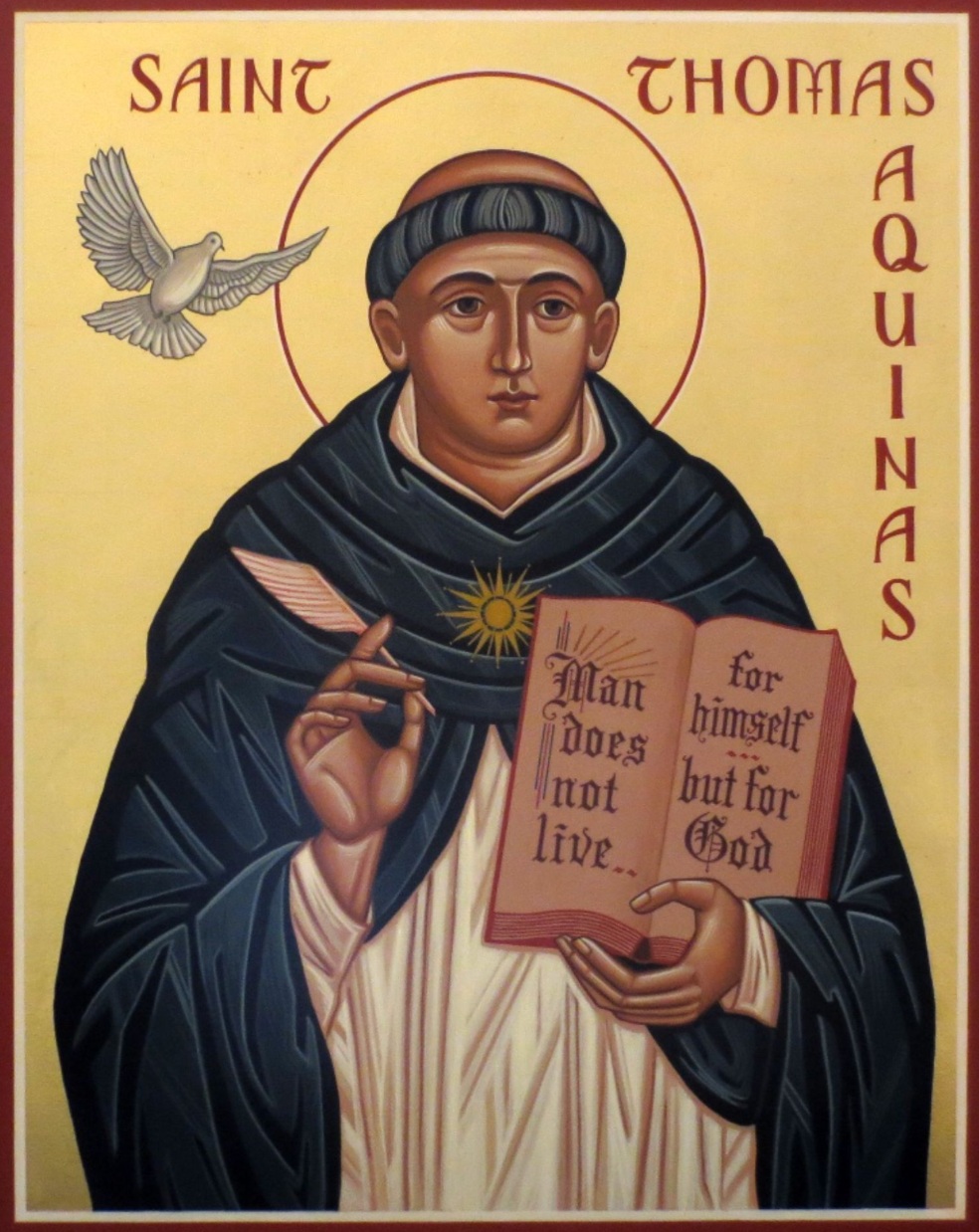
Enter ye in at the narrow gate: for wide is the gate, and
Broad is the way that leadeth to destruction, and many there are who go in
thereat. How narrow is the gate, and strait is the way that leadeth to life:
and few there are that find it! Beware of false prophets, who come to you in
the clothing of sheep, but inwardly they are ravening wolves.
Jesus
Christ; Matthew 7:13–15
Related WebPages
The
purpose of this grouping of articles is to display, defend and promote
orthodox Catholicism in alignment with the magisterial authority of
Rome.
Orthodox Catholicism Pages
Supporting original Deposit of Faith, the Magisterial Authority of Rome and the Catechism of the Catholic Church, to the letter.
Refuting "Brothers Of The Lord", again, for poor Scripture scholars. We have to go over the "Brothers Of The Lord" misinterpretation, over and over again, because newer generations of the misinformed just keep being maleducated.
Who's in Heaven? Catholics. How do we know? The Bible says so. Scripture, Tradition and consistent Church teaching down through the ages confirms it: In Heaven, there are no non-Catholics.
There is no salvation outside the Catholic Church. Once you know Christ founded it, then you must enter it, or not leave it, for there is no salvation outside of it.
The Seven Catholic Sacraments in Scripture. Protestants always ask for Scriptural evidence for all of our Sacraments; so here it is.
Indifferentism and Moral Relativism eats away at Catholic Culture. Catholicism stands against Indifferentism. Where do you stand?
The Latin Mass Page is to be a repository for links to Latin Mass availability. If your Church celebrates the Latin Mass, send a link to the Latin Mass Page.
The Traditional Latin Tridentine Mass Explained, Step By Step.
With Benedict XVI's Motu Proprio 'Summorum Pontificum', the Traditional
Latin Tridentine Mass may need explanation for the uninitiated.
Tridentine Mass Implements and Vestments
Describing the required Tridentine Mass Implements and Vestments
Background history of the recent Catholic reformation (revolution?) in liturgy.
Reform of the Liturgy began with good intentions toward minor changes,
yet almost permanently trashed Latin, and Chant, and, etc., etc., etc.
Benedict XVI's Motu Proprio Summorum Pontificum; Apostolic letter on 1962 Rite.
The Motu Proprio Summorum Pontificum confirms the 1962 Latin Rite as the 'Extraordinary' Roman Liturgical Rite.
The Pope's Letter to Bishops on Summorum Pontificum. Benedict XVI's Letter to Bishops on Summorum Pontificum issued the same day as the Motu Proprio.
The Explanatory Note on Motu Proprio Summorum Pontificum. An 'Explanatory Note on Motu Proprio Summorum Pontificum' issued by the Vatican.
Catholic Marriage Annulment: Is it merely the Catholic version of Easy Divorce. Ecclesial law regarding the Catholic marriage annulment process has not changed, yet the numbers of annulments granted in America have rocketed. Why?
John Paul II, alias John Paul the Great, now becomes Blessed John Paul. Blessed John Paul the Great has been beatified; now, on to sainthood!
Our Lady of Siluva appeared twice in Lithuania, in AD 1608. Our Lady of Siluva appeared with the Christ Child in her arms; the rock on which she stood is preserved in a shrine.
Welcome to Holy Cross (Lithuanian) Roman Catholic Church. Holy Cross Church in Old North Dayton, maintaining the Lithuanian ethnic heritage.
Woodcarver George Mikalauskas produces unique, and custom, Lithuanian crosses. A Dayton, Ohio native of Lithuanian heritage, George prayerfully produces crosses in the ancient Lithuanian style.
The conservative Catholic forum promotes orthodoxy and attacks heterodoxy.
Actually, Conservative Catholic Forum (or Liberal) make no real sense
here. A Catholic teaching is either correct, or it is incorrect,
according to official Catholic Church authority.
“Are you saved” might be the conversation starter with a devout Protestant.
First, are you saved; then, are you saved by having been “born again”
(but not by Baptism) are the two popular questions of Protestantism.
Is the Bible the sole authority for teaching Christianity?
If Holy Scripture is the sole authority for Christian teaching, then, where does it say that in Holy Scripture?
Is faith alone the sole requirement of salvation?
Luther’s dictum says that man is justified by faith alone. Is it true?
The Eucharist is our Emmanuel, our "God is with us." Who else can say it?
Roman Catholicism is centered on Eucharist; it is a central dogma of our faith.
The contentious issue of Infallibility of Papal and Church teaching.
On matters of faith and morals, and matters relating to Divine
Revelation, our central Catholic trust is in the Infallibility of the
Holy Ghost, Peter, and The Church, acting together.
The Thinking Catholic responses to questions re perpetual virginity of Mary.
From the "brothers of the Lord" to "The Davinci Code" to the word
"until" in Matt. 1:24-25, the ancient Hebrew cultural notion of
Professed Perpetual Virginity is doomed to be repeatedly challenged.
Catholic Prayer is described in the Catholic American Thinker.
The Catholic American Thinker describes, defends and presents Catholic Prayer, in all its diversity.
A submission of the “The Church is rotten to the core” argument and its basis.
If indeed the church is rotten to the core then all is lost; unless, of course, the statement is untrue.
"The History Channel" repeats the flagrant categorical lies regarding Pius XII.
Ho hum, heavy sigh, and here we go again. Once again, we see show-biz
"Historians" bypassing actual historical documents in favor of purely
anti-Catholic show-biz fictional works, for fun and profit.
On Straying, Right or Left, from the Catechism.
We have before us, on one side, excesses of "Social Justice" and
"Liberation Theology", and on the other, the "Lefebvre" movement and
related groups. In the center: the Catechism.
The "Enlightenment" birthing of Historical-Critical Scripture analysis.
Historical Criticism of the most paranormal literature ever produced
calls into question the "enlightenment" of the enlightened.
Freedom's Circle: Free Will's relationship to Love, and to Evil. Looking at Freedom, and it's relationship to Good and Evil.
Real Freedom.
The nature of Freedom, in Concept and in actual Fact
Tradition and Moral Discipline Vs. Impulsiveness, Popular Fad and Moral Chaos.
America was born of tradition and moral discipline, and she changes for the best when the process is steady and natural.
Proper catechesis is the glue that keeps the Church and the People Catholic.
Lack of proper education may cost you your liberty; lack of proper catechesis may cost you your soul.
Faith versus Atheism: Is atheism really just a silly superstition?
The Faith versus Atheism argument is at the root of every other important argument.
It's The Inquisition Myth, Vs. the various Catholic and Protestant Inquisitions.
On the history of the inquisitions (plural) that existed, and The
Inquisition, which did not. The Inquisition Myth became a handy club
with which to abuse Catholicism and Catholic history.
The Galileo Inquisition: Contemporary Icon for the Enlightenment and Scientism.
The Galileo Inquisition was no small affair at the time, but over the
centuries it has grown and become a club with which to beat the Church,
and to promote the myth of the "Dark" ages.
The Christian Medieval Crusade, the preceding events, and the aftermath.
The Medieval Crusade describes what is popularly called The Crusades;
Christendom's attempt at self defence, and the freeing of the Holy Land.
The Infamous Byzantine 4th Crusade: A Total Failure in Direction and Purpose.
In the Byzantine 4th Crusade we find classic results of intrigues,
sub-plots and greed overpowering and taking over good intention.
Artificial Contraception: Tool of Materialism with which to destroy Monotheism.
Acceptance of Artificial Contraception marked the single most
destructive turning point in the history of Western Culture, marking the
end of moral norms, foretelling tolerance of anything at all.
Our argument against public despair, hopelessness and pessimism re the future.
Despair is a mortal sin, the opposite of the virtue of hope; it is a
sin unto the death of the soul, a repudiation and rejection of God’s
grace.
Returning to American Founding Principles offers a return to national salvation.
American Founding Principles are reawakened by the mortal threat to the nation posed by Obamunism.
The Fracturing of Christianity: loss of unity of message and teaching authority
The history of the Fracturing of Christianity amplifies the need for ecumenism and healing among men of good will.
Getting ready for Paczki Tuesday. Paczki Tuesday is the old time European version of Fat Tuesday.
What is it that makes us uniquely Catholic? What defines a Catholic culture? Our baptism and our faith make us Catholic, but it is through the living out of our faith that we build and participate in the larger Catholic culture.
More American Imperial Edicts Issuing Forth out of Obamunism. Archbishop Schnurr joins Rick Santorum in identifying American Imperial Edicts from this administration.
Bringing the Liturgy Back to the Real Vatican II. Cardinal Burke Comments on Sacra Liturgia Conference
The Church calls us all to Catholic Evangelism; how do we do that? Catholic Evangelism comes easier than Protestant variants because it has its base in Truth.
Fallen away Catholics may be America's largest Christian denomination. An appeal to Fallen Away Catholics: Christ is calling you home.
Reconciliation with God, through a good Confession with Absolution. Repentance, resolve, confession, absolution, penance, and uplifting, EXHILARATING Reconciliation.
Catholics learn and practice Glossalalia, in the Life In The Spirit seminars. Life in the Spirit seminars, fueling the Catholic Charismatic renewal, bring tongue-speaking "Glossalalia", and being "Slain in the Spirit", to Catholicism.
The List of the Catholic Popes and the Historicity of the Catholic Church. Each of the Catholic Popes has a documented history, and these histories show the Apostolic Succession from Peter.
Nito Gnoci
Linda Kimball
The White House: We Hold These Truths to be Self-Evident, That All Men are Created Equal and Endowed by their Creator with Inalienable Rights
The Sacrificial Fall of Lucifer and the Evolutionary Rise of the Death Cult’s Global Luciferian Religion
Two Kinds of Wisdom and the Lamb’s Book of Life Luke 10: 17-20
Hatred, Envy, Resentment, Vengeance: Why Whites Need Not Apply Lawless Politics of Sin
The evil materialist faith of global Luciferianism, Technocracy, Socialism, and Marxism
Prayer Against Wicked Ideologues Rescue us, O Lord!
System of Lies: Ideological Paradise on Earth and Why the Bloody, Violent Dream Will Not Die
Christendom and Protestant America’s Apostasy into Paganism A Timeline
The presence and influence of powers, principalities, and demons in our age of apostasy into godlessness
Nihilism…All That Exists is Matter and Energy The Worldview that Caused the Collapse of Christendom and Protestant America
Revisiting Nihilism: The Will Turned Toward Evil and the Destruction of Western and American Civilization
The enemies of God, reality, truth, western civilization and our souls Linda Kimbal column
The Last Hour and the New World Order Prayer
Our Call to Battle: Rise of the Spirit of Antichrist Prayer Article: “And this is that spirit of antichrist, whereof ye have heard that it should come; and even now already is it in the world.” (1 John 4:3)
God to Mankind: NOW Do You See the Stupidity, Depravity, and Evil in Your Hearts?
Raising the New Tower-- Occult Evolution: Antediluvian, Babylonian and Modern Expressions
Psychopathy and the Western and American Tyranny of Evil Leftist Progressive Myths
Supernatural Genesis 1-11 vs. Pagan Darwinism God and Liberty or Fallen Mankind and Tyranny
Luke 21: 29-31: Some Signs Of America's Abandonment And Spiritual Bondage
Eternal Paradise Or Hell? How And Why Both Choices Are Freely Made
Luciferian Humanists: Citing the Genesis Account is Evil "Any country grounded in Judaeo-Christian values can't be overthrown until those roots are cut ... "
Who is intolerant because ashamed: Creationists or Evolutionary Theists?
Death of the Christian God in Hearts of All Humans Why America and W. Europe are Committing Suicide
THE WORLDVIEW OF EVIL SPIRITS - an article by Linda Kimball MAGICAL MYSTERY CHURCH
Pagan-Darwinian-Materialism Redoubt of Miserable Self-Deceived Non-Self Nihilists
Americas' Spiritually Dead, Deep State and Ruling Class Nihilists Walking Dead Parasitic Idolaters
Doctrines of Demons and the Modern Pagan and Pantheist Antithesis The West's Greatest Threat
Gnosis: The Main Expression of Paganized Christianity in the New Age Inner Knowing, Self-Salvation
Our Age of Malicious Perversion How Truth, Meaning, and Reality Have Been Perverted
The Serpent's Gnostic Luciferian Elite Oligarchy and Global Powers Demonic Darkness Over the West and America
The Creation Model Versus Modern Pagan Models
2 Corinthians 10:5
What Kind of God Do You Believe In?
2 Cor. 10:5 Destroying 'scientific' arguments for false Gods
Evil Spirits, Death of God, Satanic Inversion Pagan America's Reality of Madness, Demonic Bondage, and Non-Self
Judgment and Wrath The Biblical Explanation for Madness and Evil
The Worldview of Evil Spirits Revolution, Evolution, Materialism, Nihilism, New World Order, and More
Gnosis The Main Expression of Modern Paganized Christianity
America's Transformation Into A Mystical Pantheist God-State What the Death of God Has Wrought
Message to All Wearied Truthtellers: Let Isaiah Be Your Inspiration the Remnant
The Triune God, Supernatural Heaven, Souls, Hell, and Demons Do They Exist?
Teachings of Demons The Aeon of Horus, Reign of God-Men, and End of the Christian God
Revelation 2:7" ...the closing of a steel door – a solemn, cataclysmic slamming of a door."
Systemic Nihilism: End of the Human Race Eternal Damnation of Human Souls
Infernal Apocalyptic Atmosphere Over America Disintegration into nothing
Global and Ruling Class Criminal Elitists Their Ring of Power and Pact with the Spirit of Death and Hell
Blessed is the Man Who Does Not Listen to Falling Stars Who Follow After Damnable Heresies
Darwinism: An Abomination Aborting and Rotting the Church. The falling away and apostasy from the one true and personal Holy Triune Creator God has not ended
The Evil One and the Impenitent Who Receive His Mark“. And the LORD God formed man (and) breathed into his nostrils the breath of life; and man became a living soul.” Genesis 2:7
The Fall of Mankind, the Religion of Evolution, and the Antichrist. "Pride goes before destruction and a haughty spirit before a fall." Proverbs 16:18
Why Secular Liberals Actively Promote Evil. Mentally Retarded Liberals
Cultural Marxism. The Many Hidden Faces of Living Active Communism
The Devil, the Big Bang, Evolution, Extraterrestrials and the Genesis Problem
The Ascension To Power Of Misogyny. Hatred of Women
Gnostic Chiliastic Evolution: Satan's Alternative Plan of Salvation. The Great Reset
Why Proclaiming Jesus Christ the Word Became Flesh is Offensive. The Technocratic Utopian World Order
The Divine Androgyne, Pandemonium, and the Battle for Our Souls. Satan's Rising New World Order
America's Modern Pagan Oligarchy, Aztec Gods, and Human Sacrifice. Isaiah 57 Revisited
The Peace Symbol: Occult Sign Meaning Death Against Christians. Hatred of Jesus Christ and Christianity
Americas’ Spiritually Desolate, Parasitic, Ruling Class Nihilists. Satan and Powers and Principalities
Global Oligarchy, Forces of Darkness, and the Spirit of Antichrist. Forces Darkness Within Church and State
Darwinism: Idol of mind symbolizing hatred of Triune Creator God. And Logical End of America
Is the World a Computer Simulation in the Minds of Robotic Overlords? Magic Science, Transhumanists, Gnostic Physicists.
Your soul: Cost of admission to the Progressive Pagan City of Man. New Egypt, Babylon, Sodom and Gomorrah
Iron Curtain Over American Minds Progressive Marxisms’ Ideological Utopia
Satan’s New World Order Blueprint and Key Strategy. Christian Capitulation To the Serpent's Consensus Process
Chaos, Breakdown, Demoralization, Destruction: America's New Normal. How it came about and where we are going.
Demonic Darkness: America's Invisible Wave of Evil. Staring into the abyss
Cain, Marxism, Leftism and America's ruling class of 'superior' humans. The dragon they have in common
Modernist Christians in a Man-Centered Universe. Scientific Neutrality and Biblical Deconstruction
The Connection Between Baphomet and Why Researchers Are Creating Interspecies Embryos. 2 Corinthians 10:5
Isaiah 57 revisited: America's progressive pagan elites. Staring into the Abyss
Evolutionary Theism Implies That Christ is Wrong About Creation. "For if you believed Moses, you would believe Me, for he wrote about Me. But if you do not believe his writings, how will you believe My words?" John 5:46-47
Utopianism. Progressive Utopian Cultural Marxism Poisoning Minds, Churches, Schools, Politics
Acts 17:18-19-modern pagan and pantheist antithesis of the Word of God Ecclesiates 1:9 "What has been is what will be.."
Trotsky's Permanent Revolution From Hell In America. The Soviet System in America
Why Transgenderism Is Being Forced Upon America and Our Children. The Divine Androgyne
The Evil Eye Of Envy: Why Being ‘White’ Is Offensive To Some People. No Vice Worse Than Envy
Absolute Nothingness and Non-Self: The Reigning Worldview of Global Power Elites and Western Ruling Classes
What is Evil? Man-made alternative realities
Cliff Kincaid
Trump is Destroying Reagan's Legacy By Cliff Kincaid
Trump is a Marked Man By Cliff Kincaid
Terrorist Attack in Baltimore By Cliff Kincaid
Moscow Terror Attack is Another KGB Operation to Fool the West
Obama’s New Nazi-Communist Alliance
On the "Days Of Rage" Planned For The 2024 Marxocrat Party Convention Some of you just couldn't believe that the formerly Democrat
(Confederate) Party had already gone totally Communist before the 1968
Party Convention
Making Russia Great Again By Cliff Cinkaid
De-Nazification and De-Communization in Russia The The mutual non-aggression Hitler-Stalin Pact, which started World War II, has been carefully “forgotten”
Climate Emergency To Produce a New World Order By Cliff Kincaid
The Next Phase of Obama’s “Permanent Revolution” By Cliff Kincaid
Evil in the White House In This War, The Enemy Is In The Ranks, Standing Right Next To You
Satanism, Communism: What's The Difference? Look To The Roots Of Communism
Fox Is the Leading "Trans" Channel There are some rather peculiar goings-on at the Fox News Channel.
Trump and His Communist Enemies The Demonized Joe McCarthy Turned Out To Be Accurate In Everything He Claimed: Fox News Is Wrong About Him And About Much More
The Five Stooges on Capitol Hill They Think We Need Even More Doped No-Hopers In The American Intelligence Community
The Biden Doctrine of Demoralization and Defeat By Cliff Kincaid
A Republican Church Committee? Do Pro-American Republicans Even Know Who Frank Church Really Was?
A Top to Bottom Housecleaning of America When we clean our house, my wife has a slogan, “Top to bottom,” meaning you have to target the whole house. The same advice applies to nations.
China's Mass Murder Experiment Phase Two
Bury The Dead And Move On Fuggedaboutit!
9/11 Truth This is the real 9/11 Truth: Our “intelligence” agencies are infiltrated.
Moving Toward Gorbachev’s “World of Communism” It's called the Monster Plot.
The Errors of Russia, the Dupes of Putin, and Another Holocaust Can The Increasingly Faithless Free World Be Saved From Russia?
World War Quietly Conquering A Distracted and Blithely Unaware World. Could it actually be Satan's world war on despised humanity?
Stand With Ukraine Against Russia and China By Cliff Kincaid
Tucker Carlson Carlson Gets His Comeuppance. Tucker's View: It is not moral for us to intervene in support of any nation's (Ukraine's) democratic self-determination and against Soviet military expansion.
The Need for Secure Borders. Have we so easily forgotten what borders are for? Have we forgotten that evil exists in the world? Have we forgotten how to keep apart from this evil?
Can Ukraine Survive Putin and Biden? Can America? Can the Free World? Can Faith in God?
The Soviet Union: Back From The Dead The Return of the Evil Empire
Could an American Surrender be in the offing with Biden at the wheel? Is this not the perfect time for Communism to strike, with Commies now governing America, China and Russia? What would Biden do?
Abortion and Communism. If you ever wondered where all the popular abortion-contraception-sexuality-perversion nuttiness came from, look to Marx's Communist Manifesto.
The Secret Life of Martin Luther King, Jr. A life almost totally at odds with his reputation as a minister of the Gospel.
"We belong to the Church militant; and She is militant because on earth the powers of darkness are ever restless to encompass Her destruction. Not only in the far-off centuries of the early Church, but down through the ages and in this our day, the enemies of God and Christian civilization make bold to attack the Creator's supreme dominion and sacrosanct human rights." --Pope Pius XII
"It is not lawful to take the things of others to give to the poor. It is a sin worthy of punishment, not an act deserving a reward, to give away what belongs to others." --St. Francis of Assisi
Truth is incontrovertible. Malice may attack it, ignorance may deride it, but in the end, there it is.—Winston Churchill
The smallest minority on earth is the individual. Those who deny individual rights cannot claim to be defenders of minorities.—Ayn Rand
Atheist Genesis:
In the beginning there was nothing, and nothing happened to nothing.And then nothing accidentally exploded and created everything.
And then some bits of everything accidentally encountered other bits of everything and formed some new kinds of everything.
And then some bits of everything accidentally arranged themselves into self-replicating bits of everything.
And then some self-replicating bits of everything accidentally arranged themselves into dinosaurs.
See?
(See The Darwinism Pages)
If you can't find the page you're looking for, try the
SITE MAP.







